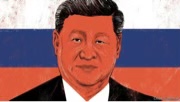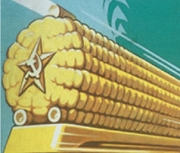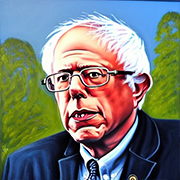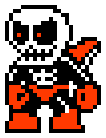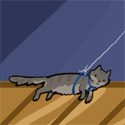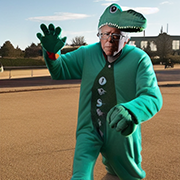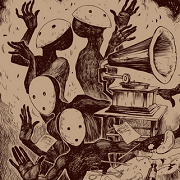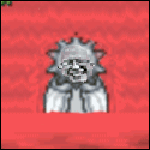|
What is the most powerful flying bug? This poll is closed. |
|||
|---|---|---|---|
| 🦋 |
|
15 | 3.71% |
| 🦇 |
|
115 | 28.47% |
| 🪰 |
|
12 | 2.97% |
| 🐦 |
|
67 | 16.58% |
| dragonfly |
|
94 | 23.27% |
| 🦟 |
|
14 | 3.47% |
| 🐝 |
|
87 | 21.53% |
| Total: | 404 votes | ||
|
sometimes they forgot to light the molotov and it was very awkward
|
|
|
|

|
| # ? May 14, 2024 00:05 |
|
Real heads stan the Ampulomet.
|
|
|
|
Frosted Flake posted:Real heads stan the Ampulomet. woah i thought that was only a home guard thing https://en.wikipedia.org/wiki/Northover_Projector
|
|
|
|
what about the indian colonies that france had? like they got a score of people out of that.
|
|
|
|
Germany beating France was a stroke of luck in the way it actually happened, though they probably would have won even if they didn't accidentally pocket the entire mechanized wing of the Franco-British army. The main thing the Germans had was an air force that could shepherd CAS planes onto enemy strongpoints. This did a lot of work that their withered artillery wing couldn't. Even by 1941 this advantage had declined a lot. The RAF was the main focus of rearmament for Britain, and Stukas couldn't operate without air superiority, so they quickly became useless in the Western Front. The VVS was not in good shape and was also blown up on the ground a lot, so Stukas stayed useful until like late into 1942 in the East.
|
|
|
|
The drive to Kiev was a real blitz that way. An attempted decapitation strike, but it was too timid, the force was too small and not upto the task. When negotiations started the battlegroup driving at Kiev pulled back. So yeah NAFO is right. Russians are too weak and cowardly to pull of a real blitz. But they didn't over commit and collapse as a state. Instead of winning a quick and decisive war knocking out the Ukrainian government, they'll just spend a long time destroying the country and the people living in it.
|
|
|
|
https://twitter.com/woodcutter_p/status/1644221556514603008 oh lmao it's all osint numbers in the casualties box either we're on multiple levels of psyops or we're looking at another vietnam/afghanistan situation in the making
|
|
|
|
https://twitter.com/azgeopolitics/status/1644391613378986014?s=46&t=kY7HKwmb1RBg9U186lxtbg whats the significance of the railway station
|
|
|
|
Regarding this 'leak' I just default to my position that "anything the white house says is manipulative, or false, part of an agenda" and "anything the NYT wries is manipulative, or false, part of an agenda". When they both just sprang up right away to go "gorsh this sure is a damaging and very real leak! Ok bye", its manipulative, or false, part of an agenda. I don't trust a loving thing out of their mouths, but I also don't think the DoD et al are super genius manipulators playing 1488d chess. If the white house and NYT had just not bothered to comment at all, and it was left as "eh some telegram poo poo, who knows, whatever" I would believe more that its fully real and lmao at any security of this stuff. They came out right way though to make sure everyone knew its totally real so now I think Its probably something intentionally planted to, at least in theory, lull Russia into a false sense of security to put them off footing right before The Big Offensive "ha ha they only have 5 donkeys and a chicken with a stinger strapped to it! woah what the- tanks coming across our position!". At the same time the world and this reddit rear end war is so loving stupid, its probably 100% real and 100% planted.
|
|
|
|
presumed socialist asks what the point of a railway station is. Sad!
|
|
|
|
i will never forgive france for the debt they shackled haiti with for liberating itself
|
|
|
|
|
|
|
|
Freeing slaves is the most horrible form of property destruction.Those are the rules, please respect the rules based world order.
|
|
|
|
yeah haiti really makes france hard to throw a lot of positives to
|
|
|
|
Tankbuster posted:what about the indian colonies that france had? like they got a score of people out of that. Pondicherry declared for de Gaulle very early on, but that's about all that's mentioned in everything I have on France in WW2. There are two recent books, Unsettling Utopia: The Making and Unmaking of French India, and Towards Freedom in Pondicherry: Society, Economy and Politics under French Rule (1816–1962), on libgen, but I haven't read them. Skimming very quickly, "In the First World War that followed, Pondicherry participated by sending 786 men to the theatres of the colonial wars in Europe and Africa. Pondicherrians also contributed gold coins and money to the war treasury. Most of the Pondicherry soldiers belonged to the Créole, Renouncer and Valanga groups." "It is noteworthy that Subramania Bharathi who was in exile in Pondicherry at that time was overjoyed at the fact that Tamil soldiers were being sent to Europe to fight in the war. Later, on 3 April 1934, when Jospeh Davidu was mayor of Pondicherry a war memorial was erected on the beach front to commemorate the memory of the Frenchmen and Pondicherry Tamils who had fallen in the battlefields of France and Africa." "Some Pondicherrians who excelled on the war front were honoured and decorated by the French state. Of them, the most prominent was Abdul Cader of the 4th Regiment of French Colonial Infantry of Morocco, who fought the Germans in Morocco and was severely wounded on 10 June 1916. Among other prominent Tamil Pondicherrians who were victims fighting the Germans in France and/or were honoured for their bravery and valour were Roc Victor Simonel, a civil engineer in the French army, Gnanousamy Ludovic, Brigadier in the 83rd Heavy Artillery Regiment (awarded Croix de Guerre for his bravery), and Marie Joseph Faife." "The influence of the Gandhian Movement was hardly felt in Pondicherry and Karaikal." "The Tamil, R. Babilonne, a member of the Pondicherry local council, and First World War veteran (sergeant chef), hailing from the de pressed Valanga caste of Nellithope, demanded that students be taught more of Indian history and geography. " "R. Babilonne and the Suthanthiram newspaper of V. Kailasa Subbiah were probably the first in Pondicherry who insisted on compulsory primary education all over French India. Babilonne was a veteran of the First World War. So he asked for the construction of a monument in Pondicherry in memory of those who died during the war." "He was not in favour of naming the roads with caste names. When there was a demand to change the name of Komutty Street to Vaishyal Street, he preferred to name the road ‘Calvé’ Road. He did away with the name Vellala Street, as it was a caste name. He renamed Tanga Salai (rue de la Monnaie) after Victor Simonel, a Tamil who died in the war front in France during the First World War. He also took steps to abolish the practice of mentioning caste in public documents like birth certificate, etc. It was a revolutionary step to do away with caste altogether, which was in line with Ponnuthamby La Porte’s ideals." "During this period, Joseph Davidu continued to be the president of the General Council, though his party was in decline. Besides, on account of continued violence and conditions of unrest in Pondicherry, the economy was also in decline as during Nadou Shanmugam’s period. When things were thus, the Second World War broke out in September 1939. Bonvin did not think it fit to consult Joseph Davidu before declaring that French India was at war, too, against the Fascists. Initially, Bonvin was in favour of Philippe Pétain who had allied with Hitler. But due to British pressure in India, he revised his position and supported Charles de Gaulle’s Free French government in exile in London. Bonvin came down heavily on Leftists like Subbiah once again, following the clampdown on Communists in British India. However, Subbiah and his men continued to be active not only among the mill workers, but also among the agricultural labourers, toddy tappers, teachers and government servants of Pondicherry, organising them in unions and fighting for their rights. French records maintain that they were nationalistic and Commu nist, and against the Europeans." "On 1 September 1939, the Second World War broke out. Subbiah was prohibited from speaking in meetings in French and British India. At that time, A.K. Gopalan, a Malayali leader of the Communist Party of India was hiding at Muthupettai under Dharmalinga Thevar’s protection. S.R. Subramanian had admitted that he, along with Subbiah and Ilayankudi Arangasamy Naiker, wanted to launch an armed revolution in Tamil Nadu, taking advantage of the war situa tion. But it seems that A.K. Gopalan who came to Karaikal dissuaded them from doing so, as Russia would help them at the appropriate time." "The British Indian government lifted the ban on the Communist Party of India in July 1942. Subbiah launched the Communist Party of French India after his release from Vellore jail, along with men like S.R. Subramanian. Some Mahajana Sabha Party members joined him or supported him in this venture. Subbiah had always had the sup port and sympathy of some oppressed caste Christian stalwarts, who were actually Renouncers, like Joseph Latour and Murugasamy Clemenceau, since the 1930s. Murugasamy Clemenceau was a re tired war veteran." "In 1940, after the 18 June declaration of Charles de Gaulle and his subsequent call to the French people in the East, Bonvin, after some hesitation, rallied behind De Gaulle, though, largely, owing to British pressure in India. Thus, he chose the camp of De Gaulle, in the place of Pétain, who sided with Germany quite early during the Second World War. In February 1941, a Franco-British agreement was signed which established a customs union between French and British India. It had its disadvantages for the French settlements. Above all, they had hereafter the right to sell their products in the huge British Indian market, at a time when there were difficulties in selling them in France and its colonies due, mainly, to the war conditions. Later, in 1940, the Communist Party of France extended its sup port to the Free France Movement of De Gaulle, and the ban on Communists was lifted also in French India, which allowed men like Subbiah to participate in politics. In July 1942, when Russia supported the allies, the ban on the Communist Party was lifted in British India." "The General Council of Pondicherry, presided over by Joseph Davidu, passed a unanimous resolution in favour of France Libre (Free France) and sent it to De Gaulle. De Gaulle was reminded of the sacrifices made by the Pondicherrians during the First World War. The resolution affirmed that French India was not a colony but a continuation of French territory and its institutions. French Indians of all classes contributed profusely to the war fund. The amount collected rose to more than 1,00,000 rupees. Many young men of Pondicherry voluntarily enrolled in the French army to fight the Germans. De Gaulle acknowledged Governor Bonvin and the French Indians’ support to the Resistance Movement. Charles François Marie Baron, the future governor of Pondicherry, was sent to Singapore from Pondicherry to represent De Gaulle in 1941. Baron had played a crucial role in rallying French India behind the Free France Move ment of De Gaulle." "When Mahatma Gandhi launched the Quit India Movement in British India, the response to it was generally muted in Pondicherry. There was still no Congress Party in Pondicherry." "Pondicherrians who had settled and prospered in French Indo china, especially Saigon, also contributed liberally to the war fund. Mr Prouchandy and Madame Prouchandy of Pondicherry donated 100 piastres each to the war fund in October 1939. Another person from Pondicherry who had prospered in Indochina and who donated to the war fund during the two World Wars was Mohamed Said. In November 1943, he donated 110 rupees to the fund. Earlier, in 1918, he had also subscribed to the national loan scheme of the French government. In Pondicherry itself, Professor Mohamed, who taught at the Colonial College, contributed to the war fund. There was even a street called Ruelle Mohamed Said in Hanoi. Sri Aurobindo is believed to have spiritually invested in turning the tide of the Second World War in favour of the Allies." "Indians settled in France as students, both from French India and British India, were arrested and interned in the Nazi concentration camps for some time before being released. (I had no idea about this) Many of them participated in the French Resistance Movement against the Nazis and thus fought for the liberation of France. (Or this) A student who had studied in the Collège Français of Pondicherry, called Mouchilotte Madhavan, was pursuing his higher studies in Paris. He, too, had joined the Resistance Movement and was arrested by the German Gestapo. He was shot dead by the Nazis along with 40 others at Mont Valérien outside Paris. He gave up his life for freedom and France." "It is noteworthy at this juncture that in the year 1942, the exiled Indian leader, Subhas Chandra Bose, who wanted to drive the British out of India by raising an Indian army with German help, had met Pierre Laval, a minister in Vichy France. He seems to have broached the topic of Independence for the French colonies in India with Laval. But Laval, though he was allied with the Nazis, was not interested. It was a time when the Japanese had conquered Singapore. It was rumoured then that Japan was eyeing Pondicherry and taking Aurobindo Ghose hostage. At that time, Edward Thompson suggested that the British should take Pondicherry under their protective custody. In February 1943, Subhas Chandra Bose made his way to Japan and Southeast Asia to fight for Indian Independence from there, with Japanese help." "Governor Bonvin declared on 6 November 1944 that the French Indian population had donated a total of Rs. 8,12,200 to the war effort. Besides, much money was donated to the Red Cross which was sent to France, apart from 580 parcels and 10 tons of goods, worth more than Rs.1,50,000. To this amount must be added the Rs. 38,000 donated in cash to the Red Cross and the subscriptions for the Red Cross that amounted to more than Rs. 80,000. Besides, the Marakkayars of Karaikal had contributed considerable cash for the war effort. A sum of Rs. 20,000 was collected from the Karikal Muslims alone in one go for the armaments fund. On the whole, Bonvin concluded that French Indians had given nearly one million and 10,000 rupees or 16 million francs." "‘Combat’ was a Resistance Movement of France born in the year 1941. It rallied behind Charles de Gaulle during 1942, when it estab lished itself firmly in the French colony of Algeria in North Africa. Combat was part of what was known as the France Combattante or Fighting France. Maurice Schumann was the spokesman of the France Combattante. It was realised then that France alone, without its colo nies as members of the same family, would not be considered as a superpower in future. It was also held that, as there was a Catholic France and a Protestant France, there was also a Muslim France. French India and Pondicherry were to be parts of this French federation or empire. In a conference in Washington on 9 July 1944, the idea of French Federation or Union was endorsed." "On 25 May 1942, the French under General Koenig fought the Germans at Bir Hakeim in Algeria (Combat, 5 June 1943). Volunteers from different parts of the French colonies went to take part in this battle. Some Tamil and Franco-Tamil Pondicherrians, too, went there to fight the Germans under General Koenig (I had no idea there were Indians at Bir Hakeim!). In April 1944, Bonvin received the Croix de la Libération from General De Gaulle himself during his visit in Algiers. On 5 October 1944, the secretary of the Comité Redressement Inde Française (Recovery Committee of French India), Joseph Latour, sent a telegram to General De Gaulle, affirm ing the support of the people of French India in his efforts to reno vate France and the French empire." "It is worthwhile to note at this juncture that the Muslims of French India highly favoured remaining in the French Union. They never participated in the Muslim League conferences organised in British India." It seems like there's a common theme here of people liking the idea of France, serving France loyally, giving blood and treasure, and then France hosed them over postwar.
|
|
|
|
Lostconfused posted:Freeing slaves is the most horrible form of property destruction. Also cultural genocide, the culture being the good ol' Antebellum South. 
|
|
|
|
People love the idea of an empire, a nation, a powerful social group that you can be part of. The problem starts when that social group turns around and says "we meant us, not you."
|
|
|
|
Lostconfused posted:People love the idea of an empire, a nation, a powerful social group that you can be part of. The French really shot themselves in the dick by doing this. Even going back to Haiti, a lot of people were eager to become Frenchmen, if only France would live up to her own ideals.
|
|
|
|
Frosted Flake posted:Pondicherry declared for de Gaulle very early on, but that's about all that's mentioned in everything I have on France in WW2. regarding the caste/congress/muslim thing, periyarism was a big thing in southern india which was explicitly anti brahminical and the fostering of an independent tamil identity including the destruction of caste. It makes perfect sense that muslim tamils would see themselves as tamils first and muslims second. Now in practice post independence a lot of the things like caste surnames being struck down etc were implemented by the INC and later the DMK (which had acquired a large cadre of disciplined INA rebels after independence.)
|
|
|
|
The rabbit hole deepens! https://twitter.com/AricToler/status/1644401179198103554 I love how dumb this all is at every level.
|
|
|
|
Majorian posted:The rabbit hole deepens! What are the odds it leaked from a NAFO discord?
|
|
|
|
Wait so they were leaked almost in real time? We're just finding out much later?
|
|
|
|
Yep. Seems to happen relatively often with this mess. A post goes viral on telegram/twitter, you try to track down an original source and it's like one or two months old.
|
|
|
|
wowmao
|
|
|
JAY ZERO SUM GAME posted:wowmao wowmao was right
|
|
|
|
|
Danann posted:https://twitter.com/woodcutter_p/status/1644221556514603008 Meaning? Like that no actually knows what's going on at the ground and the decision makers are drinking the cool aid?
|
|
|
|
it means the lions are going to win it all this year
|
|
|
|
Delta-Wye posted:wowmao was right Wowmao Third Worldist, deal with it
|
|
|
|
Oh yeah, which one of you has been screwing with my spotify account?
|
|
|
|
Ukraine has mere weeks left.
|
|
|
|
Al-Saqr posted:https://twitter.com/azgeopolitics/status/1644391613378986014?s=46&t=kY7HKwmb1RBg9U186lxtbg it's where the trains go
|
|
|
|
Deadly Ham Sandwich posted:Meaning? Like that no actually knows what's going on at the ground and the decision makers are drinking the cool aid? either they don't know or it's useful to use the OSINT numbers for propaganda if it's the former then it's a variable amount of lol depending on how much you trust Oryx that they are just using OSINT numbers when they're supposed to have their own guys for this poo poo is hosed up either way
|
|
|
|
junior nato staffer tasked with generating documents and maps: *furiously googles "how many tanks has russia lost" and mindlessly attaches number to document* a job well done
|
|
|
|
|
thankfully "in minecraft" is an ironclad defense against espionage charges or whatever
|
|
|
|
Delta-Wye posted:junior nato staffer tasked with generating documents and maps: *furiously googles "how many tanks has russia lost" and mindlessly attaches number to document* In their defence, think of it this way:  What gets in the report is subject to command discretion. The "correct" numbers were probably collated, but weren't deemed accurate, or couldn't be corroborated, or... 
Frosted Flake has issued a correction as of 21:35 on Apr 7, 2023 |
|
|
|
real numbers go into top secret documents. secret documents? reddit rear end onyx numbers only
|
|
|
|
|
Some Guy TT posted:
this is literally Russian batman, shot by mugger after seeing play, Thomans and Martha Wayne.
|
|
|
|
Akaiku posted:this is literally Russian batman, shot by mugger after seeing play, Thomans and Martha Wayne. I think that was 
|
|
|
|
How about we don't post pictures of classified materials or tweets with the pictures of classified material in the thread (USER WAS PUT ON PROBATION FOR THIS POST) (USER WAS PUT ON PROBATION FOR THIS POST)
|
|
|
|

|
| # ? May 14, 2024 00:05 |
|
check it out y'all: nuclear_codes.jpeg
|
|
|







